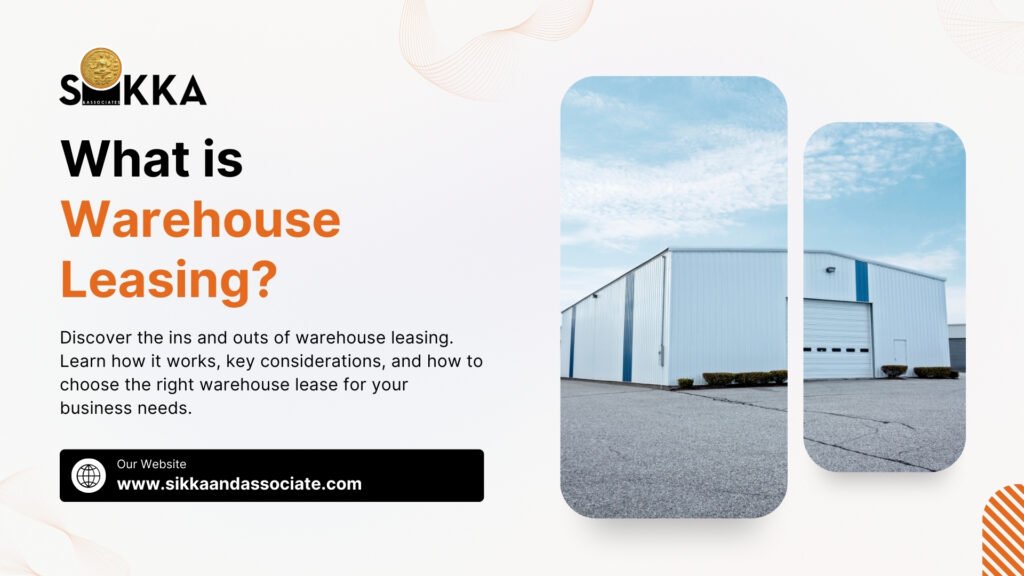In today’s fast-paced and competitive business environment, warehousing plays a pivotal role in supply chain efficiency. For many businesses, especially those in retail, e-commerce, logistics, and manufacturing, leasing a warehouse rather than owning one offers flexibility, cost efficiency, and scalability. This comprehensive guide will walk you through everything you need to know about warehouse leasing and how to make the right decision for your operations.
What is Warehouse Leasing?
Warehouse leasing is the process of renting storage or industrial space from a property owner for a specific duration. Instead of purchasing the property, businesses sign a lease agreement to utilize the space for warehousing purposes. This approach allows companies to manage inventory, handle logistics, and expand operations without the heavy financial burden of owning real estate.
Warehouse leasing can include different types of spaces, such as general storage facilities, temperature-controlled cold storage, bonded warehouses, and distribution centers. The lease terms, size, location, and amenities vary depending on the needs of the lessee and the offerings of the lessor.
Advantages of Warehouse Leasing
Leasing a warehouse offers several strategic benefits:
- Cost Savings: Upfront capital requirements are lower compared to purchasing property. Businesses can allocate more funds toward operations and growth.
- Flexibility: Lease terms can be short or long, offering flexibility to scale up or down based on demand and business changes.
- Access to Prime Locations: Leasing enables businesses to operate in strategic locations near transportation hubs or customer bases, improving delivery speed and efficiency.
- Reduced Maintenance Responsibilities: Many lease agreements include maintenance and repair services handled by the property owner.
- Tax Benefits: Lease payments may be tax-deductible as business expenses, providing financial advantages.
Types of Warehouse Leases
Understanding the different types of warehouse leases helps businesses make informed decisions:
- Gross Lease: The lessee pays a fixed rent, and the lessor covers property expenses like maintenance, insurance, and taxes.
- Net Lease: The lessee pays base rent plus some or all property expenses.
- Triple Net Lease (NNN): The lessee covers base rent, maintenance, insurance, and taxes, giving them more control but also more responsibility.
- Modified Gross Lease: A hybrid model where costs are shared between the lessee and lessor.
Key Considerations Before Leasing a Warehouse
Before signing a warehouse leasing agreement, businesses should evaluate several critical factors:
1. Location
The proximity of the warehouse to suppliers, customers, highways, ports, and airports can significantly impact logistics costs and delivery times.
2. Size and Layout
Consider the total square footage, ceiling height, column spacing, number of loading docks, and whether the layout supports your operational flow.
3. Zoning and Permits
Ensure the property is zoned for your intended use and complies with local regulations and permits.
4. Lease Terms
Understand the lease duration, renewal options, rent escalation clauses, and any penalties for early termination.
5. Infrastructure and Amenities
Check for sufficient power supply, lighting, HVAC, internet connectivity, fire safety systems, and parking facilities.
6. Security
Security features such as CCTV, alarms, fencing, and on-site guards are essential to protect inventory.
The Warehouse Leasing Process
Here is a step-by-step breakdown of how warehouse leasing typically works:
- Needs Assessment: Determine your space requirements, budget, and preferred location.
- Property Search: Engage a real estate broker or use online platforms to find suitable properties.
- Site Visits: Tour shortlisted warehouses to assess layout, infrastructure, and compliance.
- Negotiation: Discuss lease terms, rent, and responsibilities with the lessor.
- Due Diligence: Review legal documents, conduct inspections, and verify ownership.
- Lease Signing: Finalize and sign the lease agreement.
- Move-In: Plan and execute the move-in process while setting up necessary infrastructure.
Common Warehouse Leasing Mistakes to Avoid
- Ignoring Hidden Costs: Always account for additional expenses like utilities, maintenance, and property taxes.
- Overlooking Lease Clauses: Understand all lease terms, including rent escalations and renewal options.
- Choosing the Wrong Size: Overestimating or underestimating space needs can lead to inefficiency or unnecessary costs.
- Failing to Plan for Growth: Choose a lease that offers options to expand as your business grows.
Emerging Trends in Warehouse Leasing
With rapid changes in consumer behavior and technology, the landscape of warehouse leasing is evolving:
- E-commerce Growth: Demand for warehouse leasing is surging due to the rise of online shopping.
- Smart Warehousing: Tenants seek facilities with IoT, automation, and real-time inventory systems.
- Sustainability: Green buildings and energy-efficient infrastructure are becoming top priorities.
- Short-Term Leasing: On-demand warehousing and flexible lease terms cater to dynamic market conditions.
How to Choose the Right Warehouse Lease
Here are some tips to select the best warehouse leasing option:
- Define Your Requirements: Be clear about your storage needs, business volume, and logistics goals.
- Set a Budget: Factor in base rent plus additional expenses to avoid overspending.
- Consult Experts: Work with commercial real estate agents, legal advisors, and logistics consultants.
- Compare Multiple Options: Evaluate multiple properties and leases before making a decision.
- Negotiate Wisely: Don’t accept standard terms without negotiation. Look for flexible clauses that benefit your business.
Conclusion
Warehouse leasing is a smart and strategic choice for businesses looking to enhance their logistics capabilities without heavy capital investment. By understanding the nuances of lease types, evaluating critical factors, and staying informed about market trends, companies can secure the ideal warehouse space that aligns with their operational goals. Whether you are a startup scaling quickly or an established enterprise optimizing your supply chain, warehouse leasing offers the adaptability and support your business needs to succeed.
At We Sikka and Associates, we are experts in Warehouse Leasing. With deep knowledge of warehouse spaces and logistics, we help businesses find the right locations to set up successful warehouse and grow your operations with confidence.






